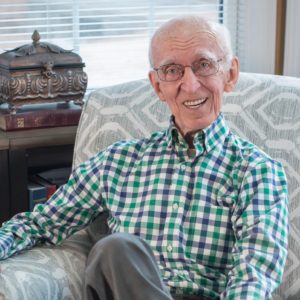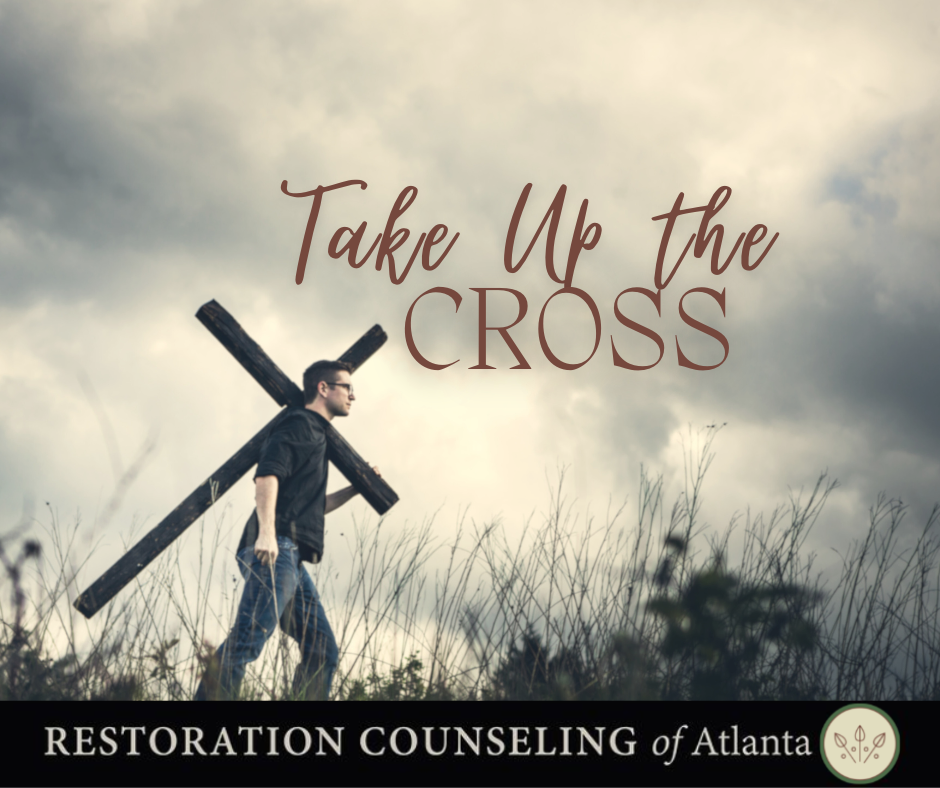In a recent episode of The Chosen, a television series created, co-written, and directed by Dallas Jenkins, I watched the anguished figure of the apostle Thomas helplessly witness the death of his beloved Ramah, to whom he was betrothed. She was murdered by a Roman official gone berserk. Thomas, who many times witnessed the miraculous powers of Jesus, pleads with him to restore the girl, saying this doesn’t have to happen. You can save her. I know you can do this, Rabbi. Please! Jesus sadly answers I’m so sorry, Thomas. It is not her time. We are left once again with the question men have asked for centuries. Why does an all-powerful and loving God allow such heart-rending pain and suffering?
I know that in a day or two, I’ll face a different Thomas. Perhaps not then, but surely before long, a visitor sitting across from me on the small sofa will ask the question. His point of focus will be his pain, and in some way, he will be expecting me to make the hurting stop. I feel a disturbing anxiety at the thought of saying I’m so sorry. It is not your time. Perhaps you could come back in two weeks.
An entirely new and troubling thought comes to mind. Perhaps we’re not supposed to make the hurting stop. Such an idea is patently counter-intuitive. Our nervous system is designed to respond to pain reflexively by withdrawing from its cause to make the hurting stop. We need to note that the pain is vital. Without it, we would not know that we are in the midst of conditions that could be life-threatening. One of the first questions a cardiologist asks when examining a heart patient is: are you having any chest pains? Imagine telling the patient not to take steps that would alleviate the pain. The simple reality is that pain is part of a survival mechanism and should not be ignored.
Because relieving pain has been paired with becoming well, we have come to believe that our effort to end pain is an essential component of healing. This pairing is how Pavlov’s salivating dog learned to equate the sound of a bell with the presence of food. The poor dog wound up drooling over food that wasn’t there.
It is not an unreasonable conclusion that relief from discomfort signals wellness. However, it is a conclusion that has made the production and sale of pain-killing drugs a billion-dollar industry. Additionally, the addictive nature of many analgesics and other potential health hazards connected with them point to an inherent danger in their use. Curiously, what ends as a problem often begins as a well-intentioned attempt to make the hurting stop. Note to dental patients: Novocain doesn’t fill cavities.
Jesus tells us to take up the cross; that is, to accept the pain and to follow him. He then adds that whoever loses his life will find it (Matt 16:24-25). Embracing pain and losing life are resounding contradictions of the system that instinctively opts for the reduction of suffering and the preservation of life.
In first-century Judea, the Via Crucis (the Way of the Cross) literally led to suffering and death. To make sense of the contradiction, we need to consider the situation that existed in the Garden of Eden before that disastrous first disobedience brought about the fall and threw a monkey wrench into the works.
God is love — perfect love — and we were made in the image of God, which is to say we were created to reflect perfect love. A cursory observation of the state of the world tells us the objective is not being consistently met. But the promises of Genesis and a series of covenants speak of redemption and return to the original system, where we exhibit the love about which Jesus said there is nothing greater. We are intended to reflect that perfect, greater love. Greater love hath no man than this, that a man lay down his life for his friends. (Jn 15:13)
Before going further, I’d like to retell a story I heard years ago at an Alcoholics Anonymous meeting. Because I don’t remember who told the story nor know its author, I apologize for not giving proper credit and I acknowledge that I am not the first to tell it.
It seems there was a man who decided that the cross he bore was given to him by mistake and should have been assigned to someone else. He decided to return his cross to the warehouse where all crosses were kept and exchange it for another. Apparently, he understood that everyone is assigned a cross, for he intended to exchange, not just discard, the one he was presently carrying. Arriving at the warehouse, he met the custodian, who asked why he had come. The man explained he wished to exchange his cross for one that fit him better. The keeper of the warehouse ushered the man inside and showed him aisle after aisle filled with crosses. The gloom was oppressive. His host told him to take his time finding a replacement and left him to make his choice undisturbed. Trying cross after cross, the man found some were unbearably heavy. Some were made of the wrong material. Some were so small and light that he was embarrassed to be seen with such an easy burden. The day wore on, and it began to look like a satisfactory cross was not to be found. Just as he was despairing of finding something he liked, a solitary cross leaning against the wall in the shadows caught his eye. It seemed to beckon. It glowed. Delighted, the man discovered it was a perfect fit. He was happily exiting the warehouse with his newly found burden when the custodian called after him, saying there was something he should know about the cross he had chosen. Fearing he was about to be deprived of his cross, the man hesitated. Then the custodian said —
“That cross you’re leaving with is the cross you came in with.”
The story captures our natural tendency to search for what Alcoholics Anonymous calls an easier, softer way. Our bargain hunter overlooked how unlikely it is that a life of eternal happiness could be had without effort at a lower price. It’s no accident that the English word cheap has come to mean inferior as well as inexpensive. This may be why God decides who gets what and why we often get what we get in spite of ourselves. When Peter questioned Jesus about the path the apostle John would walk in contrast to what Jesus predicted for him, Peter was told,“If I want him to remain alive until I return, what is that to you? You must follow me.” (John 21:22) That sounds a lot like “mind your own business, Peter. Carry your own cross.”
Let’s get back to the point where Jesus was talking about no greater love, which is another way of saying the greatest love of all. Straight from the Savior’s mouth we learn that the greatest love resides in willingness to die in order that someone else may live. When Jesus asked James and John if they were prepared to go where he was going and drink from the cup that he would drink (Mark 10:35-45), they assured him they were willing to endure whatever befell him. Jesus told them they didn’t know what they were talking about. Two thousand years later, we know where Jesus was headed and it isn’t any easier to follow him down that path. Like the sons of thunder, we may profess a willingness, but when the chips are down and we are faced with the discomfort of a cross, we often find ourselves asking for oxycodone and looking for a less expensive route.
Jesus did not tell us to take a pill. He said to take up the cross and follow him. At the very least, the willingness to suffer the discomfort of taking up the cross shows a willingness to reflect some greater love, even though it isn’t yet clear who will benefit or how. Following the way of the cross takes preparation. Taking up our crosses is a rehearsal, a preparation for an opening.
After his baptism and before beginning his ministry, Jesus was driven by the Holy Spirit into the desert to be tempted by the devil. This would be a rehearsal of his crucifixion when his tormentors would mock him, saying, “If you are who you say you are, then save yourself.” In preparation for his mission, he was tempted by Satan to escape the discomfort of forty days in the desert by accessing the power of his divinity. “If you are the Son of God, command these stones to become bread.” (Matt 4:3). He passed the test with flying colors, sent the devil packing, and never dropped a line. His script was the word of God. “It is written.”
In the old city of Jerusalem, the Via Dolorosa, which means Way of Suffering, ends at Golgotha, where Jesus laid down his life for his friends. He wants us to follow him and prepare ourselves by taking up our crosses in a full dress, tech, and run-through.
Curtain going up.
Break a leg.

Written by: Patrick Caffrey, LPC
pat@restorationcounselingatl.com, ext. 114
Patrick counsels adults who struggle with alcoholism and other forms of substance abuse, as well as related family issues. These include adult children of alcoholics (ACOA) and persons who are codependent. Pat has also written and published three books addressing the subject of addiction. His books are available through www.amazon.com or may be purchased at the Roswell office.

